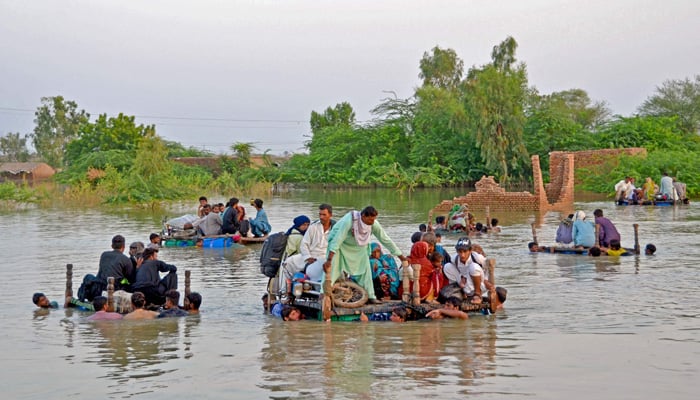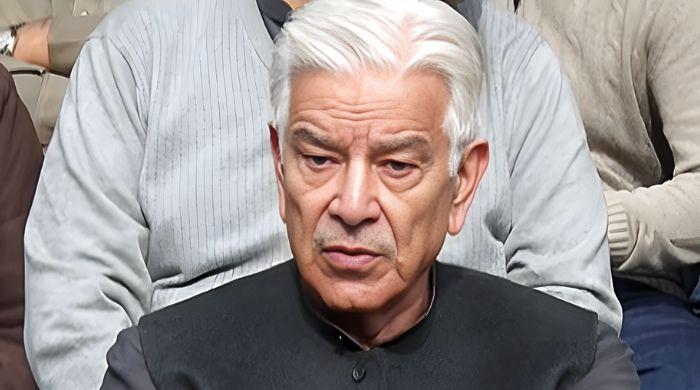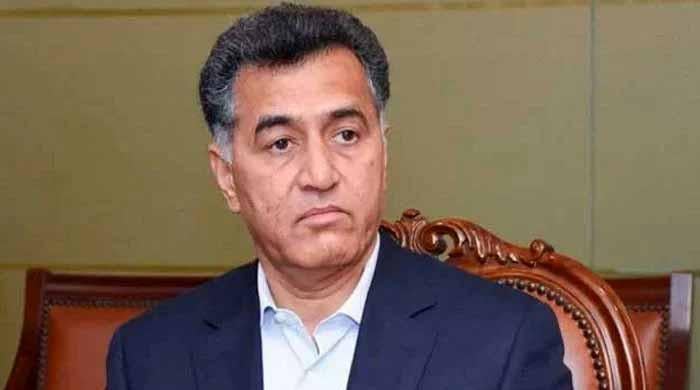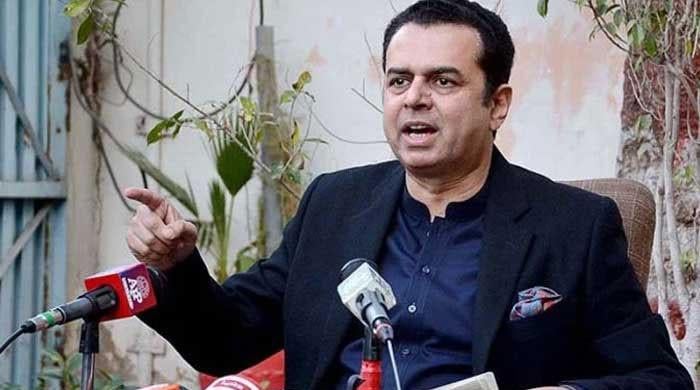Geneva flood pledges: Pakistan receives only $1.48bn of $10.9bn
Caretaker prime minister has also taken notice of this slow disbursement of committed pledges, says official
September 20, 2023

- Only $780m disbursed in project financing as of Sep 2023.
- Govt receives roughly $700m in oil and commodity financing.
- Saudi Arabia so far disbursed $600 million as an oil facility.
ISLAMABAD: Pakistan has, to date, received only $1.48 billion in funding from both multilateral and bilateral creditors as part of the Geneva pledges totaling $10.9 billion designated for the reconstruction of areas affected by devastating floods last year, The News reported on Wednesday.
The progress of project financing, however, has been alarmingly slow, with just $780 million disbursed as of September 2023. Pakistan endured severe flooding in the previous fiscal year, resulting in extensive human and financial hardships, but there was hope for rehabilitation, as donors committed $10.9 billion in the form of loans to support the reconstruction endeavors.
Islamabad, too, has successfully obtained approximately $700 million in oil and commodity financing. Nevertheless, it is an undeniable fact that the distribution of project loans has remained frustratingly sluggish, necessitating swift action from all federal and provincial agencies responsible for pulling off flood-related projects in their respective regions. Therefore, accelerating these efforts is imperative.
"The caretaker prime minister has also taken notice of this slow disbursement of committed pledges as the project loan acceleration depends upon the executing agencies’ ability to implement the projects on a fast-track basis," a top official of the government confided to The News here on Tuesday.
The Islamic Development Bank (IsDB) had committed $3.6 billion on account of commodity financing, out of which $1.1 billion was planned to be disbursed on an annual basis over a year. Out of $3.6 billion, there was a planned disbursement of $300 million, which was underway during the current fiscal year.
However, the remaining $3.3 billion was still problematic because it was syndicated financing, which the IsDB planned to secure from other commercial banks. So far, there are indications that its interest rate might exceed and fall into a range of over 10%.
However, the oil-exporting giants argued before the government that if they secured local funding, it would be on the much higher side, keeping in view the higher interest rates in the domestic market.
The Kingdom of Saudi Arabia has so far disbursed $600 million as an oil facility out of total financing committed for commodities and oil financing. The government has heavily relied on the disbursements of project loans from the World Bank and Asian Development Bank. From the World Bank loans, there are projects going to be executed in Sindh and Balochistan for the construction of housing and agriculture sectors.
The premier is expected to chair an important meeting to review progress on donor-funded projects for flood-affected areas after his return from abroad, as one of such important meetings got postponed last week before his recent departure to the USA.
The implementation of flood-affected area projects needs acceleration in order to materialise maximum disbursements from the pledged loans, but without improving bottlenecks at execution levels, this wish will remain just a pipe dream.









